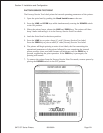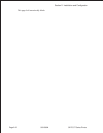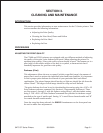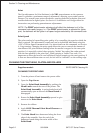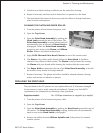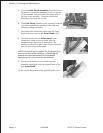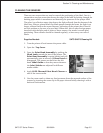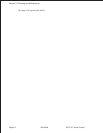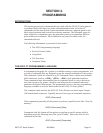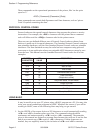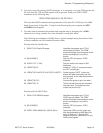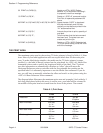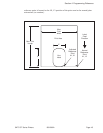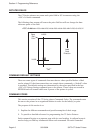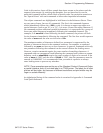
SECTION 4.
PROGRAMMING
INTRODUCTION
This section presents the commands that are used with the SATO CT Series printers
to produce labels with logos, bar codes and alphanumeric data. All of the CT
commands use the same syntax. Some commands reference a physical point on the
label using horizontal and vertical dot reference numbers. The allowable range for
these references is dependent upon the particular printer to accomodate different
print widths and resolutions. These differences are noted in tables under the
commands affected.
The following information is presented in this section:
• The SATO Programming Language
• Protocol Control Codes
• Using Basic
• The Print Area
• Command Codes
THE SATO CT PROGRAMMING LANGUAGE
A programming language for a printer is a familiar concept to most programmers. It is
a group of commands that are designed to use the internal intelligence of the printer.
The commands, which are referred to as CT Command Codes, contain non-printable
ASCII characters (such as <STX>, <ETX>, <ESC>) and printable characters.
These commands must be assembled into an organized block of code to be sent as
one data stream to the printer, which in turn interprets the command codes and
generates the desired label output. The programmer is free to use any programming
language available to send the desired data to the SATO CT Series printer.
The command codes used by the SATO CT Series Printers are based upon “Escape”
(1B hexadecimal) sequences. Typically there are four types of command sequences:
<ESC>{Command}
These commands generally tell the printer to perform a specific action, like “clear the
memory.”
<ESC>{Command} {Data}
Commands with this format tell the printer to perform a specific action which is
dependent upon the following data, like “print X labels”, where the value for X is
contained in the data.
<ESC>{Command} {Parameter}
SATOCT SeriesPrinters9001069A Page 4-1



